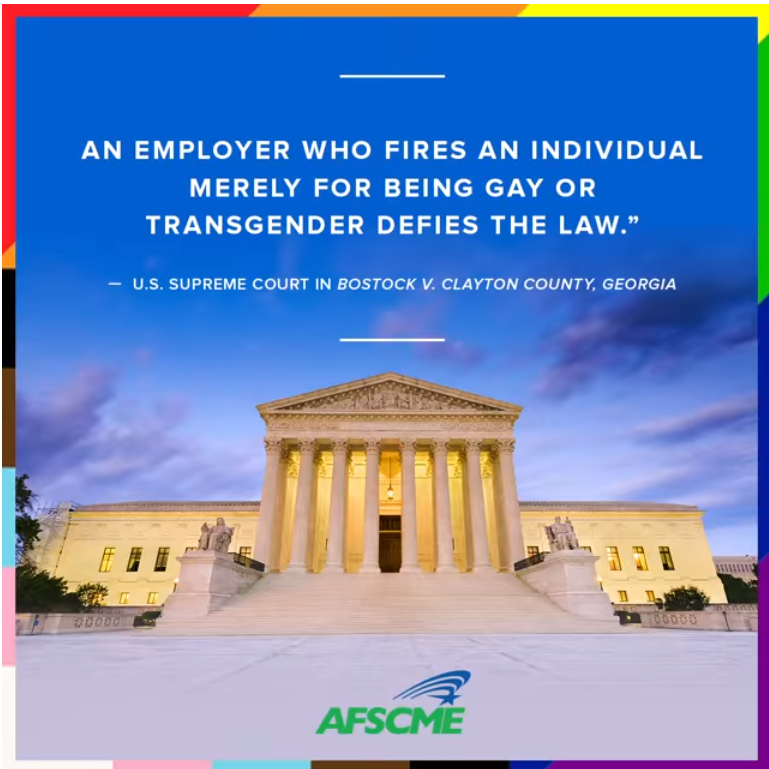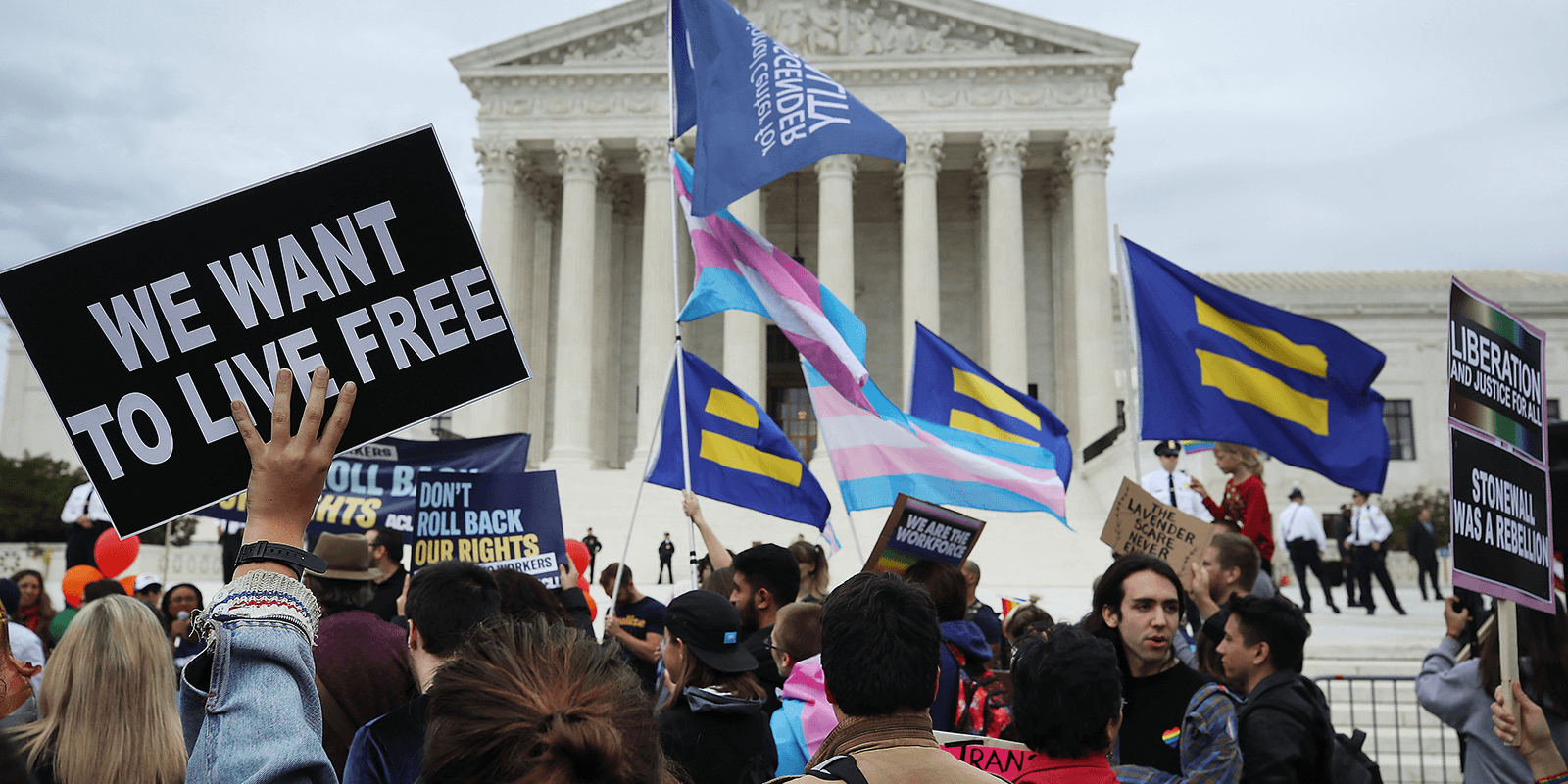AFSCME praised today’s ruling by the U.S. Supreme Court that extends protections under Title VII of the 1964 Civil Rights Act to millions of LGBTQ workers.
In a statement, AFSCME President Lee Saunders said such protections are long overdue and represent an important step in the fight for equality and justice for all workers.
“The labor movement has long fought for equality and justice for all workers, including members of the LGBTQ community,” he said. “Today’s landmark Supreme Court victory is long overdue, and a significant step toward achieving the protections and respect that all workers deserve. No worker should ever be discriminated against because of who they are or the person they love.”
AFSCME was included in an AFL-CIO amicus brief expressing the labor movement’s unified support for extending Title VII protections to LGBTQ workers.
Title VII of the Civil Rights Act of 1964 prohibits employment discrimination based on race, religion, national origin and sex. The 6-3 ruling, written by Justice Neil Gorsuch, makes it clear that sex-based discrimination encompasses discrimination against LGBTQ employees, meaning they may not be discriminated against in the workplace because of their sexual orientation or gender identity.
“Today, we must decide whether an employer can fire someone simply for being homosexual or transgender. The answer is clear,” Gorsuch wrote. “An employer who fires an individual for being homosexual or transgender fires that person for traits or actions it would not have questioned in members of a different sex. Sex plays a necessary and undisguisable role in the decision, exactly what Title VII forbids.”
At the start of the current Supreme Court term, AFSCME members stood on the court’s steps to support LGBTQ workers and press the justices to extend civil rights to them.
AFSCME’s long-time advocacy for equality and justice for LGBTQ workers began as early as 1974, when two locals in Ann Arbor, Michigan, and Seattle negotiated collective bargaining agreements that barred discrimination based on sexual discrimination, as gay rights groups noted in their friend-of-the-court brief in AFSCME’s favor in the Janus v. AFSCME case. Until today’s ruling, in some states union contracts offered the only protections against discrimination based on sexual orientation.



